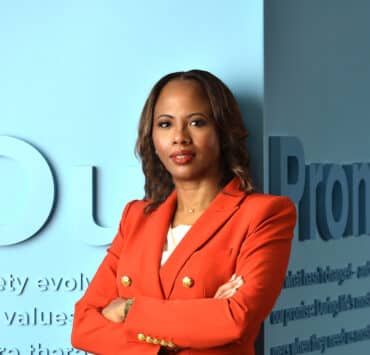|
Getting your Trinity Audio player ready...
|
Emily Burns’s career was at a crossroads when she returned from her second maternity leave. After seven years as a litigation and trademark attorney at Cooley LLP, she had discovered that trademark law was where her passion truly laid.
In fact, it was more than a passion: it was a “love affair.” And she wanted it to be a long-term relationship and practice trademark law exclusively. Did that mean having a conversation with her colleagues at Cooley? Did it mean moving to another firm? Did it mean going in-house?
It was then that a colleague and former mentee encouraged Burns to apply at Google. Today, she’s the company’s senior trademark counsel in charge of prosecution, enforcement, and brand counseling for YouTube.
It’s a role custom-made for the self-proclaimed “trademark geek.” Handling all things trademark for the world-famous brand and video sharing platform gives Burns the opportunity to deal with the complex nuances of intellectual property, infringement, free speech, fair use, parody, and content takedowns on a regular basis.
“People think going in-house means your skills atrophy, but it’s just not true. Each time YouTube releases a new product, I get to expand my knowledge base, touch new industries, and push the limits of what it means to be a trademark practitioner.”
Emily Burns
Doing it at the second-most visited website on the planet means she gets to experience things other trademark lawyers only dream of. In 2021, Burns was part of the team that secured the deal to put YouTube’s name on a new sports and entertainment venue from Los Angeles Rams’ owner, Stan Kroenke, in Inglewood, California.
She’s been able to work on nontraditional motion and sound trademarks to protect the animated images and bits of audio that accompany YouTube’s logo as seen by its 2.5 billion monthly users who together consume upwards of a billion hours of video content every day.
When she came to YouTube in 2010, the company was a user-generated content platform. Since then, she’s helped launch several new brands and products like YouTube Kids, YouTube Premium, YouTube Gaming, YouTube Shopping, YouTube Music, YouTube Shorts, and more.
The work keeps Burns energized. “People think going in-house means your skills atrophy, but it’s just not true,” she says. “Each time YouTube releases a new product, I get to expand my knowledge base, touch new industries, and push the limits of what it means to be a trademark practitioner.”
While this practical and hands-on work has helped Burns develop her career, she says mentoring has played a key role since day one. In fact, Burns was still a summer associate at Cooley when a mentor shared words of wisdom that have stayed with her ever since. “He told me that I’m the one responsible for shaping what I want my work life to look like and that nobody else would care as much about my career. That helped me realize that I really needed to make purposeful choices,” she explains.
“Being a mentor feels like giving back to a community that has helped me so much in my own career.”
Emily Burns
Another mentor and adjunct professor helped Burns discover an interest in teaching by extending to her an invitation to speak in a law school classroom. Burns gave her first lecture and enjoyed it so much that she volunteered to cover classes as needed.
Then, she set a personal goal to become a better public speaker, resolving never to turn down an internal or external speaking opportunity. Soon, Burns was presenting at internal summits and serving as an adjunct professor at the University of California Law San Francisco (formerly known as UC Hastings). She’s been teaching practical skills courses like Trademark Prosecution Seminar and Protecting Trademarks in Tech since 2009.
After benefitting from the power of mentors in her own life, Burns turned her attention to mentoring others. She is currently involved in two Google legal mentorship programs that aim to increase diversity and inclusion within the legal field. The Google Legal Summer Institute brings underrepresented 2L school students to Google’s campus for a week of seminars before participants head to full summer associateships with partner firms.
Additionally, the Outside Counsel Leadership, Education, Advancement, Diversity program is a mentoring program that unites young diverse lawyers with Google mentors for professional development and networking opportunities.
After volunteering in these formal programs, Burns has witnessed their impact firsthand. “I get to see young attorneys become part of our law firm teams and work on our issues together,” she says. “Being a mentor feels like giving back to a community that has helped me so much in my own career.”
Burns also serves as an adjunct professor at the Santa Clara University School of Law. Teaching law, especially in the technology sector, remains one of her top passions. “Everyone in tech talks about doing things at scale, and I see teaching as mentoring at scale,” she says.
Google has nine products that each have more than one billion users. And while Burns may not have a billion people in her classes, she does get to teach a cohort of students each year. Those students go on to use the practical skills she imparts to them wherever they go.
The attorney teaches those students about the real-world issues trademark lawyers face as she helps support innovative products like YouTube Shopping, which gives users the chance to promote their own products or products from other brands in their videos and live streams. In doing so, Google and YouTube are growing the creator economy. In the meantime, Burns is growing the next generation of trademark geeks.


